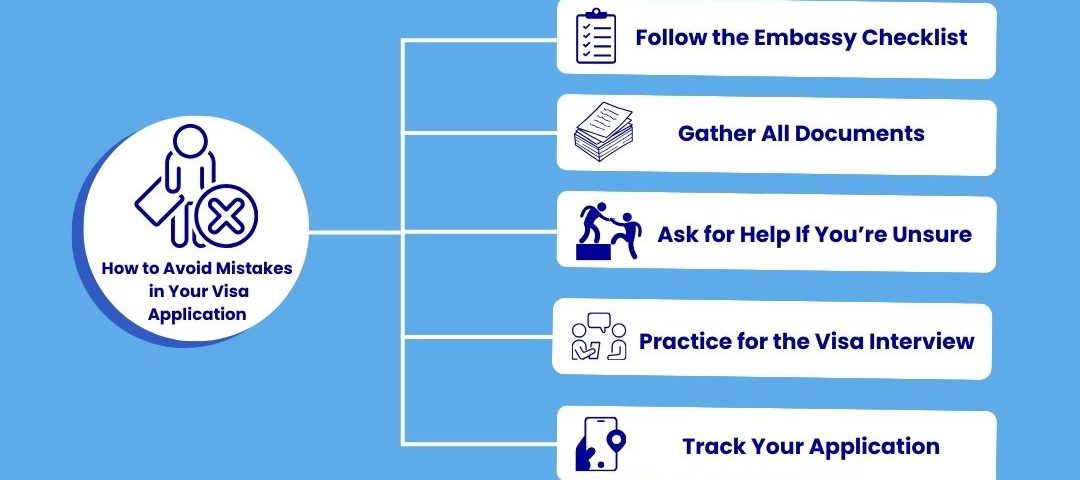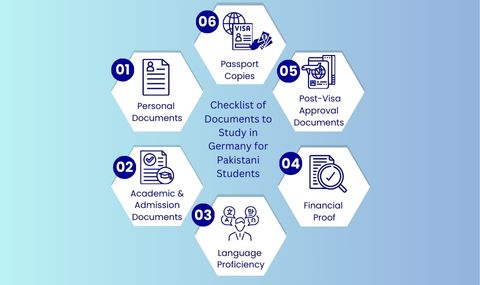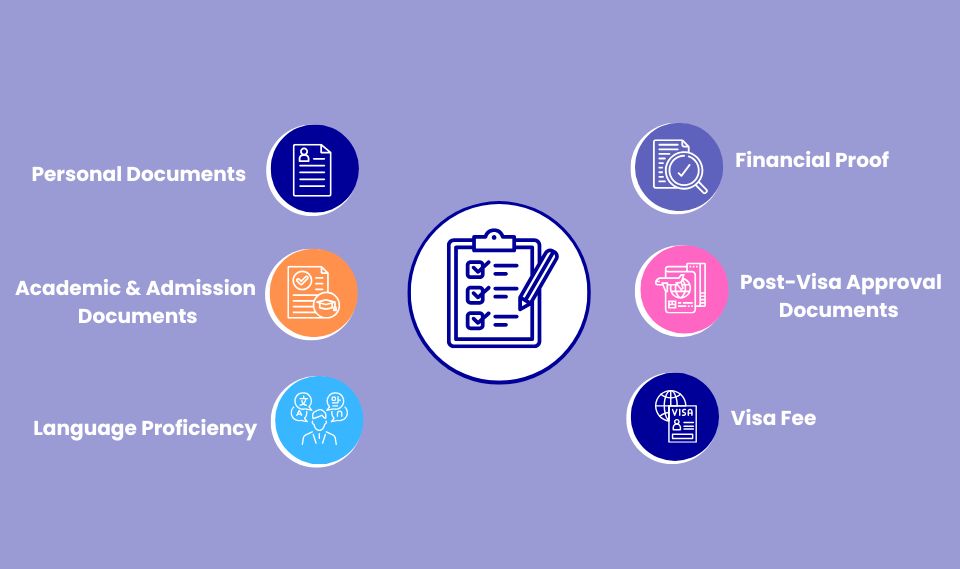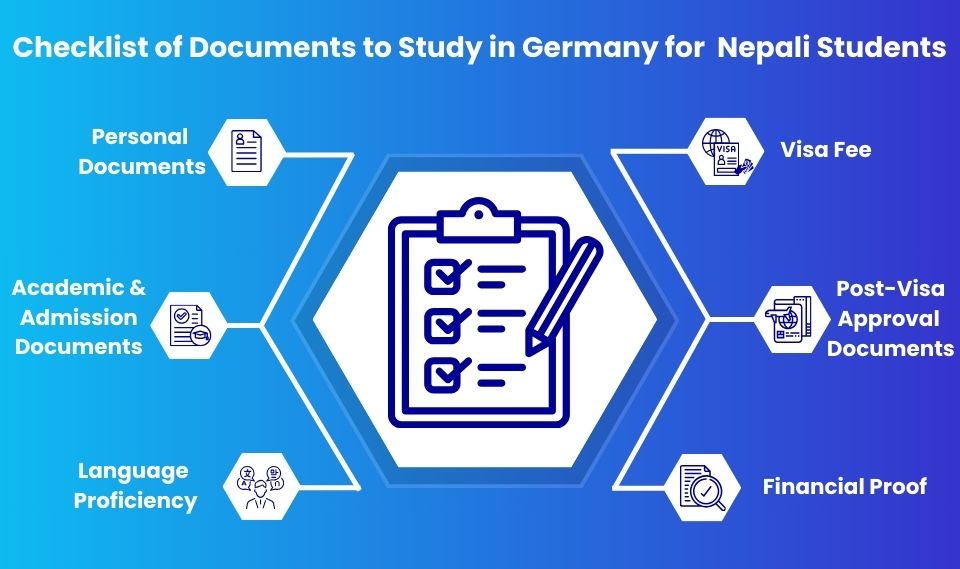
Pearson Edexcel Centre for Private Candidates in Berlin: The Complete Guide by EIIET
December 15, 2024
Visa Requirements for Nepalese Students to Study in Germany
January 6, 2025Visa Requirements to Study in Germany by EIIET
Germany is an exciting country for students as it has excellent universities, relatively low education costs, and a great student life. Therefore, if you wish to study there, you first need to know the requirements for a German student visa. There are lots of academic and cultural benefit of studying in Germany. Usually, students who fall outside of the EU/EEA are required to have a visa. If you have your admission letter then the first thing you do is apply for a Student Visa. You must submit a completed visa application along with your Passport, study acceptance letter, evidence of funds, and insurance to the embassy. Schedule an interview at the German embassy, where the appointment would be necessary, and then wait for the visa. Additionally, this visa requirement to study in Germany article will guide you through the complete process of applying for a student visa.
Importance of Checking Visa Requirements to Study in Germany
A student visa isn’t just permission to enter Germany—it let you live, study, and even work part-time legally. In fact, each requirement is in place to make sure you’re ready to study and stay in Germany without any issues.
Here’s why getting your visa right is so important:
Checklist of Documents for visa requirement to study in Germany
If you’re applying for a German study visa, here’s a simple checklist of the essential documents you’ll need:
- Valid Passport: Valid passport issued within the last 10 years.
- Passport Photos: Additionally, provide recent biometric-style photographs.
- University Admission Letter: A confirmation letter from your German university or college.
- Letter of Motivation: A self-written statement explaining your reasons for studying in Germany, which program you choose, and your career goals.
- Proof of Financial Resources:
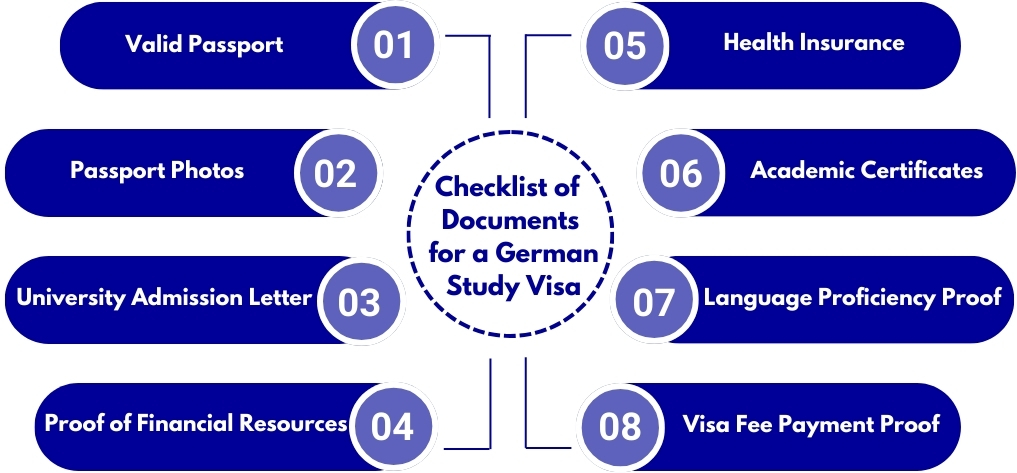 Show that you can cover your living expenses in Germany through a blocked account, sponsorship, or scholarship.
Show that you can cover your living expenses in Germany through a blocked account, sponsorship, or scholarship. - Travel Insurance: Travel health insurance valid on arrival in Germany to the date of enrollment at the University (mentioned in your admission letter) (approx. 3 months)
- Health Insurance: Provide proof of health insurance valid in Germany.
- Academic Certificates: Include copies of your educational qualifications and transcripts.
- Language Proficiency Proof: Submit test results for German or English proficiency, depending on your course requirements.
- Visa Fee Payment Proof: Keep the receipt as proof of visa fee payment.
What Happens If I Make a Mistake on my Visa Application?
Even minor errors can lead to significant issues. For instance:
- Wasted Time and Money: Visa application fees are non-refundable; fixing mistakes can mean extra costs like reapplying or rescheduling appointments.
- The embassy could reject your visa.
- Delays in Starting Your Studies.
- Extra Stress.
How to Avoid Mistakes in Your Visa Application
Applying for a visa doesn’t have to be stressful. Here’s how you can make the process smooth:
- Follow the Embassy Checklist
Every German embassy has an official list of requirements for student visa so download this list and follow it step by step. - Gather All Documents
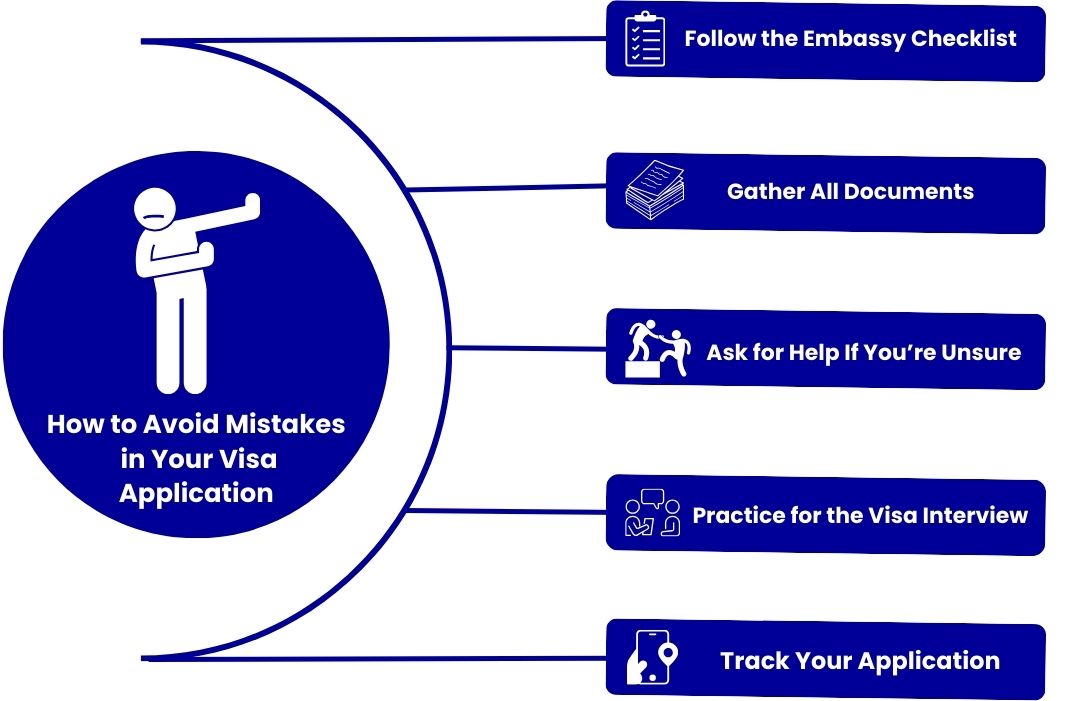
Some standard documents you’ll need include:
- A valid passport
- Proof of admission to a German university
- Blocked account confirmation or proof of funds
- Health insurance
- Academic certificates
- Proof of language skills (German or English)
Check twice if the documents are correct and up-to-date or not.
Check out requirements for visas for students from Nepal, India, and Pakistan.
- Ask for Help If You’re Unsure
If the process needs clarification, ask someone who has gone through it or hire an education consultant to guide you. - Practice for the Visa Interview
Many student visas require an interview at the German embassy. Be ready to answer questions about why you want to study in Germany, your finances, and your plans. - Track Your Application
Once you’ve applied, follow up with the embassy to see how your application is progressing.
Once the interview is complete, the embassy will process your application. After that, they will inform you about the outcome within a few weeks. After your visa is approved, the embassy will stamp your Passport, and you can prepare for your journey to Germany. Applying for a student visa to Germany can feel like a lot of work, but it’s essential and worthwhile. Start your application process as early as possible so you have enough time to gather all the documents and fix any problems. Check twice for mistakes. Focusing on all the visa requirements to study in Germany will make your visa processing easier and help you focus on your goals.

